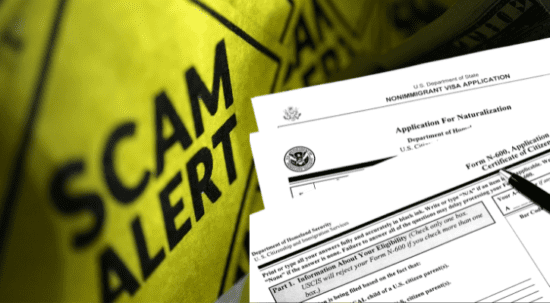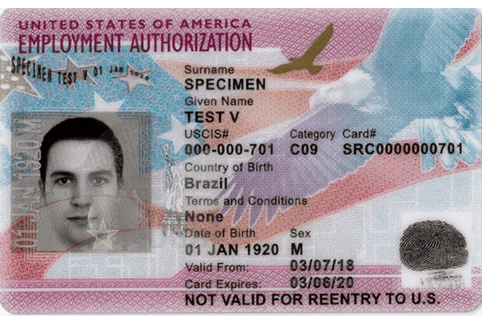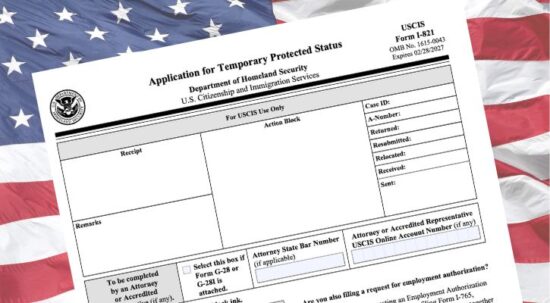What is DACA?
DACA stands for Deferred Action for Childhood Arrivals. It is a program that gives protection to certain people who entered the U.S. as children and meet the guidelines set by the Department of Homeland Security (DHS). It allows them to apply for a driver’s license, a Social Security number, and a work permit. It also offers deportation protection.
Some DACA recipients have recently been detained despite having DACA. If you are stopped by immigration officers, know your rights and make a safety plan. You have the right to remain silent and to speak with a lawyer.
What is the current status of DACA?
There has been a lot of news and confusion about DACA. For now, renewals remain open, and first-time applications have not restarted.
DHS announced a final rule to continue the DACA program that went into effect on October 31, 2022. This rule means there are no changes for current DACA recipients and their ability to renew.
If you were granted DACA before the court decision on July 16, 2021, you will continue to have DACA as long as you renew it. You will also be able to renew your EAD for work authorization and request advance parole for travel.
On March 11, 2025, the 5th Circuit Court ruled that USCIS could process new DACA applications, but the lower court must decide how this will happen. The judge has not yet given instructions, so USCIS is not processing any new applications right now.
The lawyers in the case have since shared proposals with the judge on how to move forward, but no final decision has been made yet. A hearing will be scheduled after October 27, 2025, when the judge will give further instructions.
If you do not have DACA, talk to a lawyer before you apply. A lawyer can help you understand the risks and benefits.
The same ruling said that DACA recipients in Texas will lose access to work permits. USCIS has not released official guidance yet. For now, DACA recipients in Texas can still use their work permits.
How can I renew my DACA?
You can still renew your DACA. Renewals last 2 years. You will need to submit Form I-821D online or by mail.
You must meet the following requirements:
- You have not left the USA on or after August 15, 2012 (without advance parole).
- You have continuously lived in the USA since your most recent DACA approval.
- You have not been convicted of a felony, a significant misdemeanor, or three or more misdemeanors.
If your DACA expired less than a year ago, you can still submit a renewal application.
TIP: apply for renewal 120 to 150 days before your current DACA expires to avoid disruption of status.
Yes. Workers with DACA can continue to renew their DACA and work authorization. Work permit requests are filed with Form I-765 and Form I-765WS.
DACA employees are not required to tell employers they have DACA. Firing employees who have the legal right to work (like DACA recipients) based on their immigration status might violate federal law. If you believe you have suffered discrimination, you can call the Department of Justice’s Civil Rights Division at 800-255-7688.
If you are applying for certain work visas, you may need a D-3 waiver. A D-3 waiver allows DACA recipients to legally re-enter to the U.S. after leaving the U.S. to apply for a work visa.
Advance parole is a permit to leave the USA and come back. This permit must be received before you leave the country. Advance parole will be considered for DACA recipients, but it is not guaranteed.
- If you currently have advance parole, it is valid until it expires.
- If you travel outside the United States without advance parole, your DACA will be canceled. Speak to a lawyer or trusted immigration professional before leaving the USA.
You could have signed up for health insurance through the Affordable Care Act (ACA) Marketplace starting in November 2024. A new rule ended this on August 25, 2025. As of this date, you will not be able to get or keep ACA coverage. You may have other options depending on where you live and your income.
If you have a pending initial DACA application, you do not have to file a new application. USCIS may continue processing them in the future.
Can I still apply for DACA for the first time?
Yes, you can still apply, but you may not be able to get DACA. Although USCIS will still accept first-time applications, it is not clear if or when they will process them.
Keep in mind, if you decide to apply:
- You will be paying a fee, even though approval is not guaranteed.
- You will be providing your personal information to the U.S. government.
- If your application is denied, you risk being detained and deported.
Contact an immigration lawyer to discuss this option first. You can also start collecting documents that help you meet the requirements and review if you are eligible for other benefits. Beware of notarios and others who may try to charge you to “save your spot in line.”
First-time applicants for DACA must meet the following requirements:
- You were under the age of 31 on June 15, 2012 (born after June 15, 1981).
- You are currently 15 years old or older or are under 15 but in removal proceedings.
- You started living in the US before your 16th birthday.
- You started living in the US before June 15, 2007, and have lived here ever since.
- You were physically present in the US on June 15, 2012.
- You had no lawful immigration status on June 15, 2012, and at the time of applying for DACA.
- You have not had any serious trouble with the law.
- You are in school (including a GED® program), have graduated, or served in the military.

Study for your GED® or HiSET credential online so you can go to university or find a better job.
Find help
It is important to get help if you can. Many organizations and lawyers offer free or low-cost legal services. Here are organizations that help people with DACA:
- CHIRLA (Coalition for Humane Immigrant Rights): Free assistance with DACA renewals
- Immigrant Legal Resource Center (ILRC): Offers an annotated DACA application form with notes to help you fill it out
- Immigrants Rising: Offers a step-by-step guide to eligibility and applying for DACA
- Informed Immigrant: Resources for DACA applicants and recipients
- United We Dream: Offers a step-by-step guide on how to apply and renew your DACA that includes virtual preparation sessions
There are also local organizations in your state that can help you.
USAHello से और
क्या आपको कोई जानकारी चाहिए?
इस पेज पर जानकारी USCIS, DHS, American Immigration Council, National Immigration Law Center, और अन्य भरोसेमंद स्रोतों से आती है. हमारा उद्देश्य है कि हम आसानी से समझ में आने वाली जानकारी प्रदान करें, जिसे नियमित रूप से अपडेट किया जाता रहे. यह जानकारी कानूनी सलाह नहीं है.






